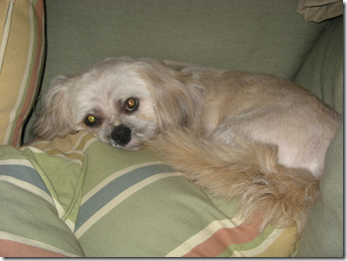I am capable of making serious financial and medical decisions while I am sleepwalking. That, my friends, is productivity.
/From the National Sleep Foundation’s website on sleepwalking:
It is a misconception, though, that it is important to not wake up a sleepwalker. In fact, it could be quite dangerous if you don’t wake them up. Sleepwalkers do things from sitting up in bed and look around to walking out of their home and driving their car for long distances.
For many years I was a sleepwalker, and I have still been known to do it from time to time.
As a boy, I would most often sleepwalk when I was not in my own bed, which made for some harrowing adventures when camping with the Boy Scouts. On two occasions, I managed to sleepwalk right out of camp. The first time I was at summer camp, so although I awoke deep in the woods, I was able to see lights from a dining hall in the distance and eventually found my way back to camp.
On another occasion, we were backpacking in the White Mountains when I walked out of camp in the middle of the night. When I awoke, I found myself in the pitch black of a New Hampshire forest, so I did what I had been taught to do. I sat down at the base of a tree and waited for sunrise, at which point I began calling for help. I was far enough away from camp that my calls went unheard, but when my friends realized that I was gone, a search was organized and I was quickly found.
Still unnerving to say the least.
About seven years ago I answered a phone call in the middle of the night without actually waking. Our dog had been dropped off at the veterinarian's office for an overnight stay for what the vet had diagnosed as severe constipation. It turned out to be a ruptured disk in her back. The vet called around 3:00 AM to ask permission to begin emergency surgery. He explained that it would be exceptionally expensive (more than the cost of our upcoming honeymoon to Bermuda) and Kaleigh only had a 50% chance of survival and only a 25% chance of ever using her hind legs again. I relayed all this information to my wife, discussed it with her, made a decision, and instructed the vet to commence the surgery. Then I went back to bed, completely unaware of what had happened.
I left the house the following morning for work before my wife woke up. About 15 minutes before students would begin filing into my classroom, I received a call from the veterinarian informing me that Kaleigh had survived the surgery but the use of her hind legs were still in question.
I told the vet that he must be calling the wrong pet owner. “My dog,” I explained, “was constipated. That’s all.”
A five minute back-and-forth exchange began, with me becoming more and more upset and angry by the second. I insisted that there has been no middle-of-the-night phone call and worried that he had operated on the wrong dog. Fortunately, my wife arrived at school just as things were starting to get heated and confirmed that what the vet was saying was true.
A week later my dog came home, and after a long recovery period, I’m happy to say that she is walking today just fine.
Sleepwalking is one thing.
Making life-and-death decisions that cost thousands of dollars while you’re still asleep is another.
When my wife awakens me in the middle of the night now for any reason, so often asks me more than once if I am actually awake, and with good reason.
The National Sleep Foundation is correct:
“It is a misconception that it is important to not wake up a sleepwalker. In fact, it could be quite dangerous if you don’t wake them up.”
